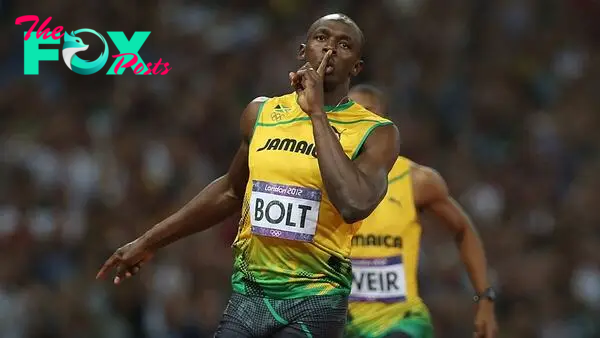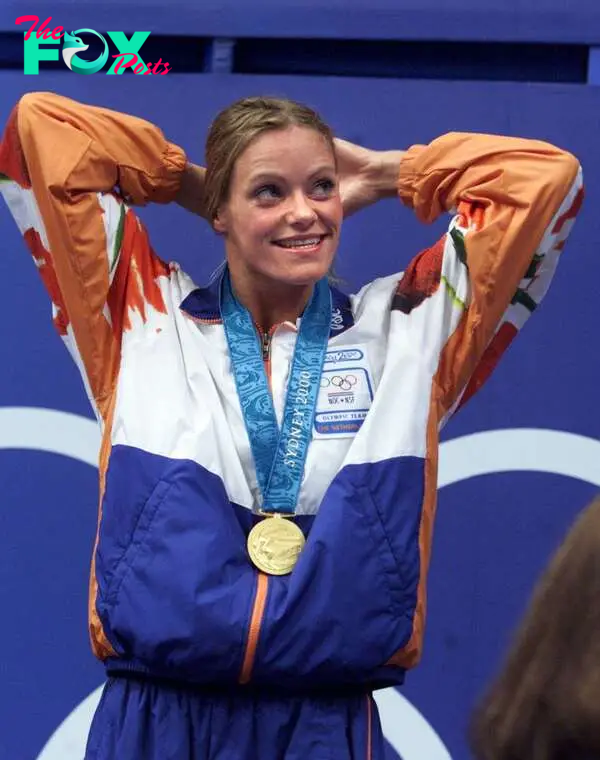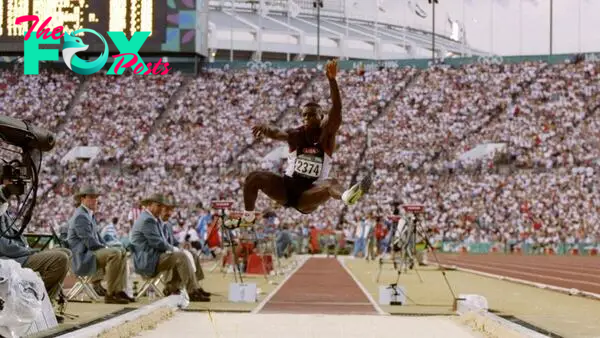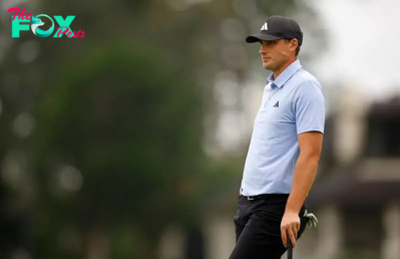Sports
Which athletes have won the most Olympic medals in history?
There’s just days to go until the opening ceremony for the 2024 Olympic Games in Paris. Over the next two and half weeks the finest athletes of their generation will gather to compete for a place in the history books, to add their name to the illustrious list of Olympic gold medallists.
Over the years a select few athletes have soared above their peers and racked up an incredible haul of gold medals, marking themselves out as the greatest in their chosen fields.
With excitement growing for the start of the 2024 Olympics, we take a look at the most decorated athletes in the history of the Games...
Who has won the most Olympic gold medals?
10. Usain Bolt (Jamaica) - Athletics, 8G 0S 0B
Jamaican sensation Usain Bolt first grabbed international attention at the 2002 World Junior Championships, where he won the 200 meter event. At his Olympics in 2004 he failed to get out of the early rounds but he enjoyed a breakout season in 2008. Bolt broke the 100-meter world record in New York with a time of 9.72 and was among the favourites to clinch gold at the 2008 Olympics in Beijing.
Bolt starred at in Beijing, winning three gold medals in his own inimitable style. His first gold came in 100 meters, recording a world record time of 9.69. He went on to win the 200 meters and the 4×100 meters relay, also in world record-breaking times.

At London 2012 Bolt became the first athlete to win three Olympic gold medals at two consecutive Olympics. He then repeated this feat at the following 2013 and 2015 World Championships and established himself as the greatest sprinter of all time.
Usain Bolt ended his Olympic career at the 2016 Games in Rio, again winning the sprint triple. However Bolt’s 2008 teammate Nesta Carter was revealed to have tested positive for a banned substance, disqualifying the entire team and leaving Bolt with eight Olympic gold medals.
9. Matt Biondi (USA) - Swimming, 8G 2S 1B
The three-time Olympian Matt Biondi racked up 11 Olympic medals in swimming. Biondi first comPeted at the 1984 Olympic Games, qualifying for the 4 x 100-meter freestyle after surprising with a fourth place at the US trials. In his freshman year at UC Berkley, Biondi was a member of the university’s water polo and swimming team. At the Los Angeles Olympics, Biondi swam the third leg of the relay contributed an impressive 49.67-second split time in the final to help his team to the gold medal and a World Record time.
His peak came at the Seoul 1988 Games where Biondi won seven medals; five golds, a silver in the 100-meter butterfly and bronze in the 200-meter freestyle. At the 1992 Games in Barcelona he won two more gold medals in the relays and an additional silver medal in the 50-meter freestyle.
During his swimming career, Matt Biondi set seven individual world records (three in the 50-meter freestyle and four in the 100-meter freestyle) and won six gold medals at the World Championships.
8. Jenny Thompson (USA) - Swimming, 8G 3S 1B
United States’ Jenny Thompson, with 12 medals, has won more swimming medals and gold medals than any other woman in Olympic history.
Across her four Olympics appearances, all of her eight gold medals came in relays. Thompson’s only individual medals were a silver in the Barcelona 1992 100-freestyle and a bronze in the same event at Sydney 2000.

While attending Columbia Medical School, Thompson came out of retirement and made the US team, winning two relay silver medals at Athens 2004.
Thompson’s haul of 12 medals makes her the third-most successful female Olympian. After retiring, Thompson became a physician specializing in pediatric anesthesiology.
7. Sawao Kato (Japan) - Artistic gymnastics, 8G 3S 1B
In the world of male gymnastics, no athlete comes close to Sawao Kato’s record of eight gold medals in his three appearances at the Olympics.
Kato was a member of the successful all-around Japanese teams of 1968, 1972 and 1976 and also won the individual title on the first two occasions. In 1976 he was forced to settle for a silver medal behind the great Soviet gymnast Nikolay Andryanov. Kato’s other gold medals came in the individual floor exercises (1968) and the individual parallel bars (1972, 1976).
Strangely, Kato never won an individual title of any kind at the World Championships, but he was member of the winning Japanese team in 1974. In 2001, Sawao Kato was inducted into the International Gymnastics Hall of Fame.
6. Birgit Fischer-Schmidt (Germany) - Canoe sprint, 8G 4S 0B
Germany’s Birgit Fischer-Schmidt is widely considered the greatest female canoeist of all time. Her total of eight Olympic gold medals and 27 World Championships golds remains one of the most remarkable career achievements in all sports history.
Fischer-Schmidt’s incredible Olympic career spanned 24 years, from her first at Moscow in 1980, to her last gold medal at Athens in 2004.
In 2008 she was inducted into the German Sports Hall of Fame. Now an avid photographer, Birgit Fischer-Schmidt also runs a kayak school in her birthplace of Brandenburg.
5. Carl Lewis (USA) - Athletics, 9G 1S 0B
The four-time Olympian Carl Lewis is an American track-and-field icon who won nine Olympic gold medals during the 1980s and ‘90s.
Lewis qualified for the U.S. Olympic team in 1980 but did not compete because of the US boycott of the Moscow Games. At the 1984 Games in Los Angeles his four victories (100 meters, 200 meters, 4×100 meters relay, long jump) matched the record set by Jesse Owens at the 1936 Olympic Games.

He ended his Olympic career at the Atlanta Games in 1996 after Lewis surprised many by making it through the fiercely competitive US trials. At that Games he equalled another record by winning the long jump competition for the fourth consecutive Games. Before Lewis, Al Oerter was the only other US athlete to win the same Olympic event four times consecutively.
Despite his performances Lewis never achieved mainstream popularity among fans in the United States, but many athletes credit Lewis for increasing the prize and sponsorship money in the sport.
4. Mark Spitz (USA) - Swimming, 9G 1S 1B
High expectations surrounded 18-year old Californian Mark Spitz ahead of the 1968 Olympic Games. He won two relays golds in Mexico but failed to reach the podium in the individual events.
This failure motivated the American and he came back stronger at the following Games in Munich in 1972. Spitz blitzed the field, winning seven gold medals and setting seven World Records. At the time his seven triumphs was an Olympic record for the most number of gold medals at one edition of the games.
In 1991, at 40 years of age, Spitz attempted a return to the Olympic team for the 1992 Games in Barcelona. However his age and the high level of competition ensured that he missed out in the qualifiers, ending his record-breaking Olympic career.
3. Paavo Nurmi (Finaland) - Athletics, 9G 3S 0B
Legendary Finnish distance runner Paavo Nurmi was one of the first athletes to utilise modern preparation techniques and his detailed training schedule and in-race intelligence brought him incredible success. Between 1920 and 1928 Nurmi won nine Olympic gold medals and three individual silver medals, reinventing the field of distance running.
His medals came across a number of events: 1,500 meters, 3,000 meters (team), 5,000 meters, 10,000 meters, steeplechase and cross-country.
At this point the Olympics was a strictly amateur affair and Nurmi was banned from the 1932 Games due to allegations that he was a professional. He continued to be banned from international competition and would never again compete at the Olympics. He did, however, return to carry the torch at the opening ceremony at his home country’s Olympics in Helsinki. The iconic ‘Flying Finn’ set 22 official and 13 unofficial world records during his career.
2. Larisa Latynina (USSR) - Artistic gymnastics, 9G 5S 4B
Until the London Olympics in 2012 and the appearance of Michael Phelps, Russian female gymnast Larysa Latynina was the most decoarated athlete in Olympic history. She racked up a total of 18 medals - nine gold, five silver, and four bronze - during the course of her career.
She represented her nation at three Olympic Games: Melbourne 1956, Rome 1960, and Tokyo 1964. Latynina won the team and floor exercise competitions at all three of those Games. Her coach was the famous Alexander Myshakov, who was also the coach of another famous Soviet gymnast, Olympic medalist Boris Shaklin.
After she retired from the competition, she became the Russian national team gymnastics coach. In 1998 Larisa Latynina was inducted into the International Gymnastics Hall of Fame.
1. Michael Phelps (USA) - Swimming, 23G 3S 2B
As you may well have guessed, American swimmer Michael Phelps is the most successful athlete in the history of the Olympic Games. A phenomenon, Phelps has more than twice as many gold medals as any other Olympian and boasts an incredible number of world records.
It had long been thought that no one would break Mark Spitz’s record of seven golds at a single Olympic Games but Phelps blew him out of the water with eight first-placed finishes at the Beijing 2008 Olympics.

Phelps’ first Olympic experience came at Sydney in 2000 when, at the age of 15, he became the youngest American swimmer to appear at the Games. That year he finished fifth in the 200-meter butterfly, but there was much more to come from the prodigious talent.
He won won six gold and two bronze medals at Athens 2004 and added a further eight golds at Beijing in 2008, setting a near-unbreakable record, and breaking seven world records.
At the London Games in 2012 Phelps picked up four golds and two silvers and subsequently announced his decision to retire. He later changed his mind and returned for the Rio 2016 games. In Brazil he won five more golds and one silver, a fitting end to the most incredible Olympic career ever seen.
-

 Sports2h ago
Sports2h ago‘Based on a True Story’ Season 2 Features a Joke About a Murderer Targeting Travis Kelce
-

 Sports7h ago
Sports7h ago2024 CME Group Tour Championship: Round 1 tee times, pairings and featured groups | LPGA Tour
-

 Sports7h ago
Sports7h agoHow much prize money does the winner get at the 2024 CME Group Tour Championship? LPGA Tour
-

 Sports14h ago
Sports14h agoKelly Stafford Says She Used to Feel ‘Dirty’ Using Husband Matthew Stafford’s Name for Clout
-

 Sports18h ago
Sports18h ago2024 Las Vegas Grand Prix: Date, time and how to watch the F1 race on TV and stream online
-

 Sports19h ago
Sports19h agoDave Portnoy Bashes Zach Bryan for Allegedly Begging for UFC Shout-Out in Front of Brianna Chickenfry
-

 Sports19h ago
Sports19h agoPro Golfer Brian Harman’s 6-Year-Old Son Nearly Drowned, Family Friend Who Helped Save Him in Coma
-

 Sports23h ago
Sports23h ago2024 CME Group Tour Championship: How to watch on TV, stream online | LPGA Tour

















